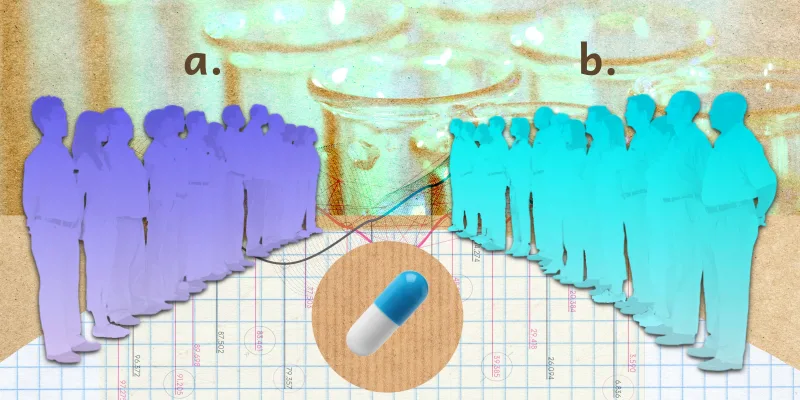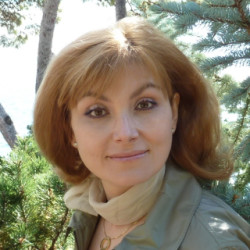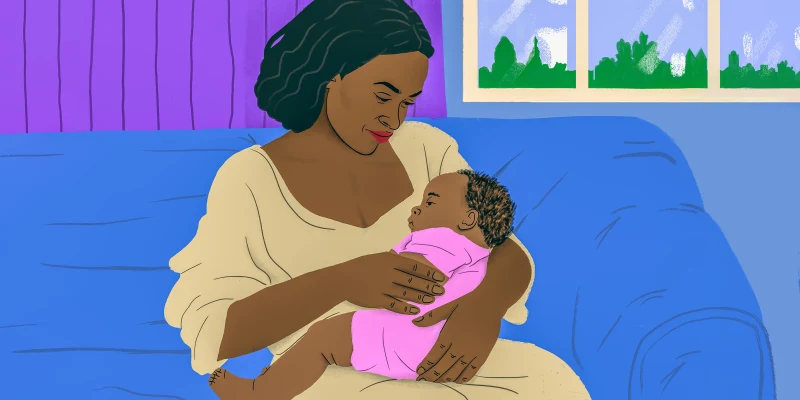Growing up as a triplet, I was always identified and grouped with my brothers, whether I wanted to be or not. Our mom put us in coordinated outfits; we took the classic bunny pictures in the mall; and we even had one Labrador Retriever puppy each. At times, I resented this likeness and shared life — even going out of my way to wear different clothes from my brothers, Colton and Tyler, and get involved in different activities. Eventually, however, I realized that I have strength in shared identity; learning how to collaborate with people who appear superficially identical to me but who have their own unique personalities, skills, and strengths has taught me how to be not only a great brother but also a great team member and medical professional.
Finding Harmony in Difference
Although growing up we were often referred to as a set, called ‘the triplets’ or ‘the Ciavarras’ rather than our own names, my brothers and I were never as alike as we seemed. We each had our own unique attributes — Colton’s boldness and critical thinking, Tyler’s creativity and emotional intelligence, and my intellectual curiosity and patience. These differences weren’t just tolerated; they were embraced. We didn’t see them as obstacles to our relationship; instead, they were the building blocks of a deeper connection.
Today, my brothers and I all have different careers and lives, but our closeness continues. When one of us faces a challenge in his field, the others are there to offer encouragement and share advice. We understand that, though our careers may not overlap directly, our individual experiences can help us guide one another. This sense of empathy and support has created a strong foundation for our relationship, one that has stood the test of time.
As I have begun my career as a physician, I have observed that this lesson I have learned about finding harmony in difference, and in leading with empathy, is directly applicable to my work in the hospital. In many ways, my resident cohort has become my new family — certainly with respect to the amount of time we spend with each other. Now my fellow residents are the people with whom I communicate on a daily basis. They are people who pick up the phone when I call at any hour of the day, and vice versa.
Much like I have grown to appreciate the unity through diversity within my family, I have come to appreciate the different attributes of my resident cohort. We may all wear a similar white coat or scrubs, but we all come from different backgrounds and different medical schools, and we each bring to the table a unique and specific set of qualities and strengths. My upbringing has allowed me to see that through our diversity of experiences, we become stronger as a group. By supporting each other’s strengths and specific talents we ultimately provide better care to our patients and grow into better doctors and surgeons.
Choosing Support Over Competition
In addition, my triplet identity has helped me learn to navigate an issue innate to any group, whether in medicine or out: competition. Growing up in a situation where my brothers and I could have easily chosen to compete with and compare ourselves to one another, we instead elected to establish a constant flow of mutual respect. This approach allows us to listen, to ask each other questions, and to offer support.
One example that embodies this respect is our experience training for sports. In the weight room, my brothers and I would compete intensely to see who could lift the most weight and do the most pushups. When one of my brothers did a certain number of pushups, I was fiercely determined to do a couple more. This drive to outperform my brothers was a form of healthy, as opposed to toxic, competition: it was based on a desire for our team to collectively rise. Even though the immediate desire was to do “better” than one another, we celebrated our individual successes together — as we understood that the benefit of one ultimately contributed to the benefit of all. Coming to understand this has helped me in my experience as a resident. When a fellow resident performs a procedure or surgery with great ease, speed, or accuracy, I support their accomplishment instead of feeling bad about my own abilities. Watching them excel encourages me to excel myself; it compels me to strive for a similar level of proficiency and efficacy. I have this attitude because I know that their success ultimately translates to our patients receiving better care.
Conflict Resolution and Communication
Another relevant lesson about success in medicine that I have learned from being a triplet is the value of effective conflict resolution and communication. When you spend so much time with people, like I did with my brothers growing up, you become an expert at identifying each other’s pet peeves. You learn the things that quickly make people upset and that cause them to develop a high level of annoyance. This was most definitely the case with my brothers and me. There would be times where I would do something that got under my brothers’ skin (intentionally or not) and vice versa. However, a lesson we learned from our parents was to be quick to forgive and ask for forgiveness and to resolve conflict between the relevant parties without getting unnecessary people involved.
This same need for grace, forgiveness, and direct and humble communication applies to residency. This period is arguably one of the most stressful times, if not the most stressful time, of our lives as physicians. We work long hours, treat debilitating and devastating diseases, and regularly communicate with co-workers, patients, and families who are under a tremendous amount of stress themselves. Having conflict is an inevitability. Much like my relationship with my brothers, the key is to promptly and respectfully address these issues to grow stronger as a team and ultimately become a better version of yourself.
When I reflect back on my life as a triplet, I feel so grateful for how well it prepared me for the life I lead today. I’ve come to value the importance of finding common ground with others, even in a world that often highlights our differences. Being a triplet has shown me that unity doesn’t require uniformity. Instead, it celebrates the idea that people, despite their unique qualities, can come together to form something greater than the sum of their parts. The bond I share with Colton and Tyler is one of profound understanding — our connection is a testament to the power of cooperation, individuality, and empathy. It’s the same now with my resident family.
Ultimately, it was not a choice to be a triplet. Nonetheless, I would not trade it for the world. Because of my unity with my brothers, I have come to realize the importance of finding unity with others. I am so thankful for the life that I have been given, and I am even thankful for being called Colton or Tyler from time to time.
What have you learned about medicine from your siblings or family members? Share in the comments!
Dr. Bronson Ciavarra is a current neurosurgery resident at Baylor Scott and White Medical Center - Temple, TX. He enjoys woodworking, making pizzas, spending time on the ranch, and lake days. Bronson is passionate about medical humanities, philosophy of mind, and brain-computer interfaces. Dr. Ciavarra is a 2024-2025 Doximity Op-Med Fellow.
Image by RealCreation / Getty Images






